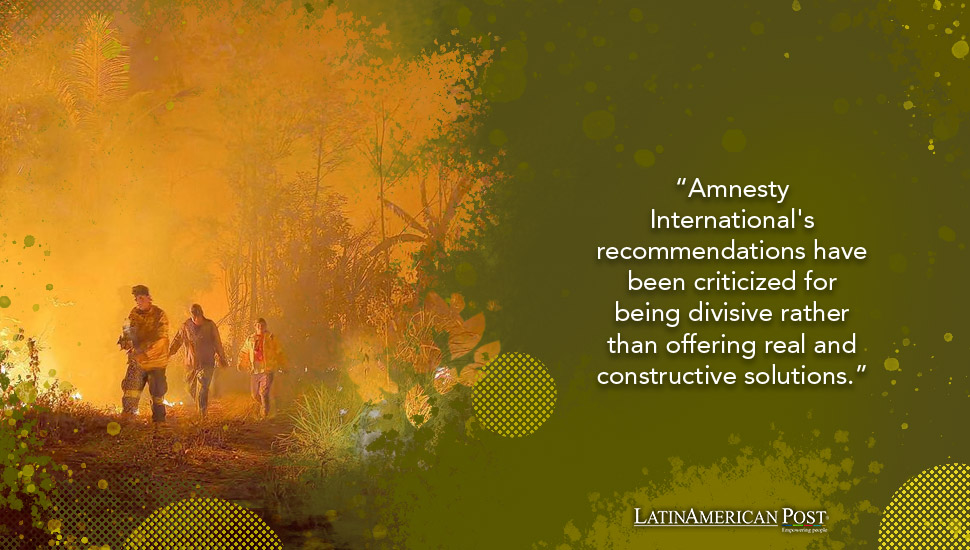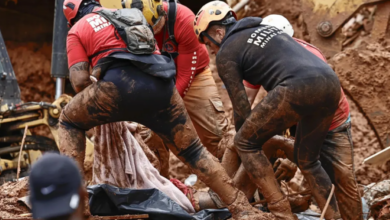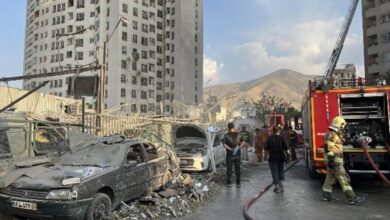Amnesty International’s Empty Words on Latin American Fires

Amnesty International (AI) has urged South American leaders to take unprecedented action to address climate catastrophe. While everyone acknowledges the situation’s urgency, AI’s recommendations have drawn criticism for being divisive rather than offering real, constructive solutions.
An Urgent Call, But Where Are the Solutions?
As wildfires rage across the Amazon and other protected regions, Amnesty International (AI) has called on the leaders of Argentina, Brazil, Bolivia, Colombia, Ecuador, Paraguay, and Peru to take drastic and immediate action to prevent further environmental devastation. In a letter addressed to these countries’ presidents, AI highlighted record-setting fires and urged for “urgent measures” to avert climate catastrophe.
But here’s the problem: while everyone knows something needs to be done, AI’s calls for action are mainly empty rhetoric. The climate crisis is real, but simply stating that the time to act is now without offering tangible steps or acknowledging each country’s unique challenges is not productive. AI’s comments, while well-intentioned, have sparked division and frustration rather than fostering a collaborative atmosphere necessary for effective climate action.
The Scope of the Disaster
There’s no denying the scale of the disaster. According to Brazil’s National Institute for Space Research (INPE), more than 50,000 wildfires were recorded in the Amazon basin in 2024 alone, with Brazil accounting for nearly 72% of the total fires. Bolivia comes second, with just over 11% of the region’s fires.
The figures are staggering. In September, 60% of Brazil was blanketed by smoke, with over 11 million hectares burned since the beginning of the year. Paraguay has seen 318,604 hectares of forest cover destroyed just in September. In Colombia, more than 19,000 hectares of native forest were lost in the same month, while fires ravaged most of Peru’s departments. Meanwhile, in Bolivia, four million hectares have been decimated.
The region is experiencing an environmental crisis of unprecedented proportions. Yet, calling for “urgent action” does not help the situation. What’s needed are targeted, pragmatic solutions that account for each country’s specific circumstances.
Empty Words Without Concrete Plans
AI’s letter is full of recommendations but largely echoes what everyone already knows. Calls to phase out fossil fuels, reform industrial agriculture, and ensure legal consequences for illegal land use have been common talking points for years. While these are all necessary goals, AI fails to recognize the complexities behind implementing these changes.
Many countries’ AI addresses grapple with deep-rooted economic and political issues that make sweeping changes challenging to enact. Brazil, for example, is heavily dependent on industries such as agriculture and energy, both of which contribute to deforestation and carbon emissions. Bolivia faces similar challenges, with much of its economy tied to extractive industries. Expecting these nations to immediately halt fossil fuel production or drastically transform their agricultural models without offering viable alternatives is not realistic.
Even AI’s recommendation to secure Indigenous people’s rights, while important, lacks clarity on how to balance their interests with those of national governments and private sectors. Indigenous communities undoubtedly possess invaluable knowledge for environmental conservation, but stating that their rights should be respected doesn’t offer a roadmap for how these rights can be integrated into national policies without further conflict.
It’s one thing to call for action but another to understand the complexities and offer feasible, actionable steps that governments can take. Instead of uniting these countries collectively, AI’s vague and divisive comments have sparked backlash, with leaders feeling pressured rather than empowered to act.
The Need for Constructive Collaboration
AI’s call lacks a sense of constructive collaboration. It’s easy to blame governments for failing to act, but what’s needed now is a more cooperative approach that brings all stakeholders—governments, Indigenous communities, industries, and environmental organizations—together to find realistic solutions.
For example, AI’s call for phasing out fossil fuels overlooks the economic realities countries like Brazil and Bolivia face. Brazil’s reliance on hydroelectric power, severely affected by drought, leaves the country scrambling to find alternative energy sources. AI’s suggestion that Brazil immediately transition to renewable energy is sound but lacks concrete strategies for achieving this without devastating economic consequences.
Initiatives that gradually introduce renewable energy into the mix while still supporting the existing infrastructure are needed instead. Collaborative projects incentivizing sustainable agriculture and protecting forests could be more effective than AI’s blanket statements about the need for agricultural reform. Governments, industries, and environmentalists must work together to create practical solutions that address the root causes of the crisis without undermining the economies that many of these nations rely on.
Ignoring Existing Progress
AI’s letter also fails to acknowledge some South American countries’ progress in combating climate change. For example, Colombia has implemented ambitious reforestation projects, and Brazil’s recent return to the Paris Agreement under President Luiz Inácio Lula da Silva signals a renewed commitment to environmental protection. Even Bolivia, despite its challenges, has taken steps to regulate deforestation.
By ignoring these efforts, AI risks alienating leaders already working toward positive change. Instead of recognizing and building on the progress made, AI’s letter adopts a tone of reprimand, which does little to foster goodwill or encourage further action.
This isn’t to say that more can’t be done—far from it. The situation is dire, and more aggressive action is undoubtedly needed. But by failing to acknowledge the steps that have already been taken, AI risks positioning itself as a critic rather than a collaborator, which is counterproductive at a time when unity is essential.
A Path Forward
To truly make a difference in addressing the climate crisis, we need more than calls for “unprecedented action.” We need practical, nuanced solutions that account for the unique challenges faced by each country. South American leaders need support, not criticism, and the international community must offer more than just lip service if we hope to see real change.
For example, instead of simply calling for an end to fossil fuels, AI could propose a detailed plan that helps countries transition to renewable energy sources while maintaining economic stability. This could involve international investment in solar and wind power projects or technology-sharing agreements that make renewable energy more accessible and affordable.
Similarly, instead of condemning industrial agriculture, AI could offer specific recommendations for sustainable farming practices that preserve biodiversity while allowing food production. Collaborating with local farmers and offering incentives for sustainable land use could lead to more immediate and lasting results than broad criticisms of current practices.
Involving Indigenous communities in decision-making is also crucial, but it must respect their autonomy while integrating their knowledge into national policy frameworks. Rather than simply stating that Indigenous rights should be respected, AI could work with governments to create legal frameworks that ensure Indigenous participation in environmental governance, providing a platform for their voices to be heard at the highest levels of decision-making.
Moving Beyond Rhetoric
While AI’s calls for action are well-intentioned, they fall short of offering the constructive solutions needed to address the climate crisis in South America. The fires raging across the Amazon and other protected areas are a stark reminder of the situation’s urgency, but simply stating that something needs to be done is not enough.
Also read: Daylight Saving Time Won’t Fix Brazil’s Energy Crisis
What we need now is collaboration, not criticism. The international community must collaborate with South American leaders, Indigenous communities, and industries to develop realistic, actionable solutions that address these nations’ environmental and economic challenges. Only then can we hope to prevent the catastrophic consequences of climate change and ensure a sustainable future for all?





